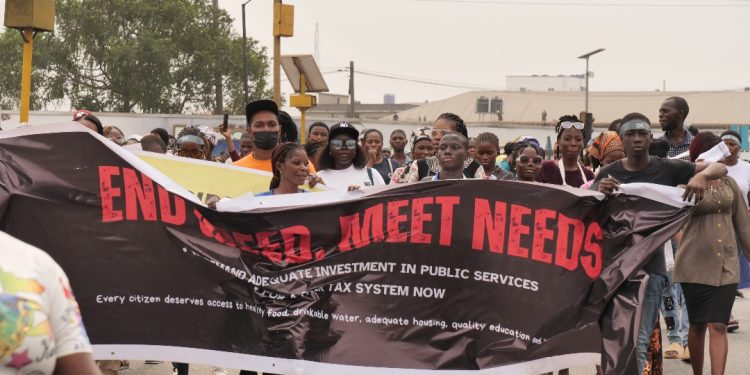Groups are increasingly mounting pressure over concerns that President Bola Tinubu’s proposed tax reforms will disproportionately affect Nigeria’s most vulnerable, raising widespread alarms about their potential impact on poverty, inequality, and environmental sustainability.
Critics argue that the reforms sideline gender-sensitive policies, exempt polluting industries, and fail to address systemic inequities, exacerbating existing economic and social divides.
A recent analysis of the administration’s approach reveals a troubling trajectory. The reforms prioritize revenue generation at the expense of equity and inclusivity, leaving the burden squarely on low-income households while providing loopholes for polluting industries.
This strategy has drawn backlash from the Fight Inequality Alliance (FIA), a group which represents women, youth, persons with disabilities, and other marginalized groups.
FIA stated that evidence is emerging that the administration’s proposed tax reform is set to increase the burden on the most vulnerable, neglecting gender-sensitive provisions, and exempting polluting industries, thereby deepening poverty, inequality, and environmental degradation.
The alliance warns that the proposed tax policies lack provisions to support women and children, who bear the brunt of economic hardship.
Recent data from the Nigerian Bureau of Statistics reveals alarming levels of poverty, with over 65 people—predominantly women and children—trampled to death last December in separate locations while scrambling for basic necessities.
In contrast, elite privileges persist. Tinubu’s administration has increased spending on luxury benefits for retired military generals, including bulletproof SUVs and fully funded overseas medical care. This stark disparity highlights a governance system favoring the wealthy while neglecting those in dire need.
The reforms also grant undue leniency to polluting industries, exacerbating environmental degradation. Critics argue that by excluding high-emission industries from significant tax obligations, the administration is undermining Nigeria’s climate goals and leaving communities vulnerable to pollution and health risks.
The FIA is demanding a progressive tax system that compels the wealthiest 1% to shoulder their fair share while alleviating the tax burden on low-income earners.
They have also reiterated calls for increased investment in public services such as education and healthcare.
“The time is ripe to turn away from neoliberal economic models that deepen inequality.
“The government must adopt people-centered policies, allocating at least 15% of the budget to healthcare and 20% to education, in line with international benchmarks,” the group said.
FIA is urging the government to immediately put and to the increasing commercialization and privatization of education, healthcare and other basic services.
The group is also demanding for “A budgetary allocation of 15% and 20% budgetary allocation to the health and education sectors across the three tiers of government. Immediate halt of the proposed discriminatory disbursement of government student loan scheme (NELFUND) and a total replacement of the scheme with education grants and scholarships
“Adequate investment in agriculture and water provision and comprehensive social welfare programme to ensure access to food and water to all citizens, and an end to the privatization of public water across the states. Economic and social support for persons with disabilities to ensure inclusive participation in the society
“Immediate cut in governance cost by reducing government size and cutting the jumbo salaries and emoluments of government officials. A fair tax reform that ensures that the rich pay their fair share and abolishes the super-rich to provide subsidies for the poor. Respect and protection of democratic rights – to freedom of assembly and of thought.”
With protests planned across the nation, the alliance aims to ensure the administration prioritizes the needs of the many over the greed of the few.

